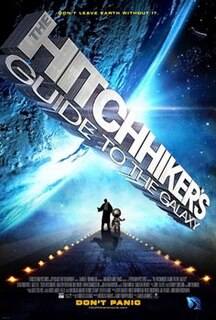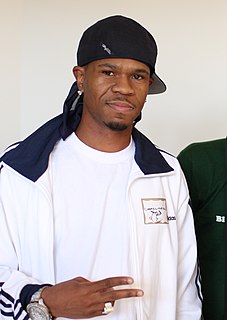Related Research Articles

id Software LLC is an American video game developer based in Richardson, Texas. The company was founded on February 1, 1991, by four members of the computer company Softdisk: programmers John Carmack and John Romero, game designer Tom Hall, and artist Adrian Carmack. Business manager Jay Wilbur was also involved. id Software made important technological developments in video game technologies for the PC, including work done for the Wolfenstein, Doom, and Quake franchises. id's work was particularly important in 3D computer graphics technology and in game engines that are used throughout the video game industry. The company was involved in the creation of the first-person shooter (FPS) genre: Wolfenstein 3D is often considered to be the first true FPS; Doom is a game that popularized the genre and PC gaming in general; and Quake was id's first true 3D FPS.
LimeWire is a discontinued free software peer-to-peer file sharing (P2P) client for Windows, OS X, Linux and Solaris. LimeWire uses the gnutella network as well as the BitTorrent protocol. A zero-cost version and a purchasable "enhanced" version were available; LimeWire Pro could be acquired through the regular LimeWire software without payment, as users distributed it through the software without authorisation. BitTorrent support is provided by libtorrent.

The Hitchhiker's Guide to the Galaxy is a comedy science fiction franchise created by Douglas Adams. Originally a 1978 radio comedy broadcast on BBC Radio 4, it was later adapted to other formats, including stage shows, novels, comic books, a 1981 TV series, a 1984 video game, and 2005 feature film.

Mostly Harmless is a 1992 novel by Douglas Adams and the fifth book in the Hitchhiker's Guide to the Galaxy series. It is described on the cover of the first editions as "The fifth book in the increasingly inaccurately named Hitchhikers Trilogy". It was the last Hitchhiker's book written by Adams and his final book released in his lifetime.
Justin Frankel is an American computer programmer best known for his work on the Winamp media player application and for inventing the Gnutella peer-to-peer network. Frankel is also the founder of Cockos Incorporated, which creates music production and development software such as the REAPER digital audio workstation, the NINJAM collaborative music tool and the Jesusonic expandable effects processor. In 2002, he was named in the MIT Technology Review TR100 as one of the top 100 innovators in the world under the age of 35.
Trillian is a proprietary multiprotocol instant messaging application created by Cerulean Studios. It is currently available for Microsoft Windows, Mac OS X, Linux, Android, iOS, BlackBerry OS, and the Web. It can connect to multiple IM services, such as AIM, Bonjour, Facebook Messenger, Google Talk (Hangouts), IRC, XMPP (Jabber), VZ, and Yahoo! Messenger networks; as well as social networking sites, such as Facebook, Foursquare, LinkedIn, and Twitter; and email services, such as POP3 and IMAP.
OSCAR is AOL's proprietary instant messaging and presence information protocol. It was used by AOL's AIM instant messaging system and ICQ.
LithTech is a game engine developed by Monolith Productions and comparable with the Quake and Unreal engines. Monolith and a number of other video game developers have used LithTech as the basis for their first-person shooter games.

Peer Gynt is a five-act play in verse by the Norwegian dramatist Henrik Ibsen published in 1867. Written in Norwegian, it is one of the most widely performed Norwegian plays. Ibsen believed Per Gynt, the Norwegian fairy tale on which the play is loosely based, to be rooted in fact, and several of the characters are modelled after Ibsen's own family, notably his parents Knud Ibsen and Marichen Altenburg. He was also generally inspired by Peter Christen Asbjørnsen's collection of Norwegian fairy tales, published in 1845.

The Hitchhiker's Guide to the Galaxy is a 2005 science fiction comedy film directed by Garth Jennings, based upon previous works in the media franchise of the same name, created by Douglas Adams. It stars Martin Freeman, Sam Rockwell, Mos Def, Zooey Deschanel, Bill Nighy, Anna Chancellor, John Malkovich, and the voices of Stephen Fry, Helen Mirren, Thomas Lennon, Richard Griffiths, Ian McNeice, Bill Bailey and Alan Rickman.

Hakeem Temidayo Seriki, better known by his stage name Chamillionaire, is an American rapper, entrepreneur, businessman, and investor from Houston, Texas.

The Hitchhiker's Guide to the Galaxy is a BBC television adaptation of Douglas Adams's The Hitchhiker's Guide to the Galaxy which was broadcast in January and February 1981 on UK television station BBC Two. The adaptation follows the original radio series in 1978 and 1980, the first novel and double LP, in 1979, and the stage shows, in 1979 and 1980, making it the fifth iteration of the guide.
The Tertiary Phase, Quandary Phase, Quintessential Phase and Hexagonal Phase are respectively the third, fourth, fifth and sixth series of The Hitchhiker's Guide to the Galaxy radio series. Produced in 2003, 2004 and 2018 by Above the Title Productions for BBC Radio 4, they are radio adaptations of the third, fourth, fifth and sixth books in Douglas Adams' The Hitchhiker's Guide to the Galaxy series: Life, the Universe and Everything; So Long, and Thanks For All the Fish; Mostly Harmless and And Another Thing....

id Tech 4, popularly known as the Doom 3 engine, is a game engine developed by id Software and first used in the video game Doom 3. The engine was designed by John Carmack, who also created previous game engines, such as those for Doom and Quake, which are widely recognized as significant advances in the field. This OpenGL-based game engine has also been used in Quake 4, Prey, Enemy Territory: Quake Wars, Wolfenstein, and Brink. id Tech 4 is licensed under the terms of the GNU General Public License v3.0 or later.

Brookfield High School is a public high school serving the town of Brookfield, Fairfield County, Connecticut, United States. The school offers a wide variety of co-curricular and extra-curricular activities, and is frequently ranked by U.S. News & World Report as one of the top high schools in Connecticut and the United States. Brookfield is one of the twenty-one school districts in District Reference Group B.
MySpaceIM was the official instant messaging client for the social networking site Myspace.
Rainberry, Inc., formerly known as BitTorrent, Inc., is an American company that is responsible for the ongoing development of the BitTorrent peer-to-peer protocol, as well as the ongoing development of μTorrent and BitTorrent Mainline, two clients for that protocol. Files transferred using the BitTorrent protocol constitute a significant slice of all Internet traffic. At its peak, 170 million people used the protocol every month, according to the company's website. The company was founded on September 22, 2004 by Bram Cohen and Ashwin Navin. In 2018, the company was acquired by cryptocurrency startup TRON, and Bram Cohen left the company.
The Kelihos botnet, also known as Hlux, is a botnet mainly involved in spamming and the theft of bitcoins.

μTorrent, or uTorrent is a proprietary adware BitTorrent client owned and developed by BitTorrent, Inc. With over 150 million users it is the most widely used BitTorrent client outside China; globally only behind Xunlei. The "μ" in its name comes from the SI prefix "micro-", referring to the program's small memory footprint: the program was designed to use minimal computer resources while offering functionality comparable to larger BitTorrent clients such as Vuze or BitComet. μTorrent became controversial in 2015 when many users unknowingly accepted a default option during installation which also installed a cryptocurrency miner. The miner was removed in later versions, but had already done irreversible damage to μTorrent's reputation.

Lisp Flavored Erlang (LFE) is a functional, concurrent, garbage collected, general-purpose programming language and Lisp dialect built on Core Erlang and the Erlang virtual machine (BEAM). LFE builds on Erlang to provide a Lisp syntax for writing distributed, fault-tolerant, soft real-time, non-stop applications. LFE also extends Erlang to support metaprogramming with Lisp macros and an improved developer experience with a feature-rich read–eval–print loop (REPL). LFE is actively supported on all recent releases of Erlang; the oldest version of Erlang supported is R14.